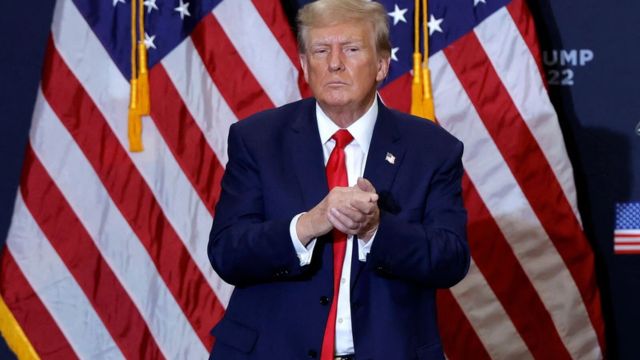With “absolute immunity” for former presidents, Trump wants the US Supreme Court to back him
In an unprecedented legal move that captures the nation’s attention, Donald Trump, the former President of the United States and Republican presidential candidate, has urged the U.S. Supreme Court to endorse a doctrine of ‘absolute immunity’ for ex-presidents from criminal prosecution for acts conducted while in office.
This plea is set against the backdrop of Trump’s attempts to overturn the results of the 2020 election, raising questions about the boundaries of presidential power and the accountability of the highest office’s occupant.
Trump’s legal challenge, filed on March 19, seeks to establish that a president, even after leaving office, should not face criminal charges for actions undertaken in an official capacity. This argument arises as Trump faces criminal charges brought by Special Counsel Jack Smith regarding efforts to subvert the 2020 election outcome.
Smith, appointed by U.S. Attorney General Merrick Garland, has levied serious accusations against Trump, including conspiring to defraud the United States and obstructing the congressional certification of President Joe Biden’s electoral victory.
The legal battle reaches the Supreme Court after a series of lower court defeats for Trump. In December, U.S. District Judge Tanya Chutkan dismissed Trump’s immunity claim.
This decision was upheld in February by the U.S. Court of Appeals for the District of Columbia Circuit, which firmly rejected the notion of presidential immunity from criminal prosecution, emphasizing the fundamental democratic principle of holding leaders accountable to the law.
Trump’s Supreme Court filing not only reflects his legal strategy but also intertwines with his political narrative as he campaigns for a return to the White House.
He argues that the threat of criminal prosecution undermines the presidency’s independence and effectiveness, positing that future presidents could be subjected to ‘blackmail and extortion’ by political adversaries. This, Trump claims, would detract from the executive’s authority and decision-making capacity.
The Supreme Court’s agreement to hear Trump’s appeal has postponed his trial, offering a temporary reprieve as he navigates multiple criminal cases while seeking reelection.
Trump’s insistence on his innocence and the portrayal of the legal actions against him as politically motivated underscore the deeply polarized nature of American politics, particularly in matters touching the integrity of the electoral process.
The legal and political drama unfolds as Trump’s allegations of a stolen 2020 election continue to resonate with his base. The charges against him not only challenge his personal future but also test the resilience of American democracy, probing the limits of presidential power and the principle of accountability.
As the Supreme Court prepares to hear arguments on April 25, the nation watches closely. The outcome of this case could have far-reaching implications for the presidency, the rule of law, and the electoral system.
At the heart of the controversy is the balance between granting a president the freedom to govern without fear of judicial interference and ensuring that no individual, regardless of their office, is above the law.
The arguments presented by Trump and countered by Smith highlight a fundamental tension in American democracy: the desire for strong, decisive leadership versus the imperative of checks and balances.
The Supreme Court’s decision will likely resonate beyond the courtroom, influencing not only the future of Donald Trump but also the contours of presidential authority and accountability for generations to come.











